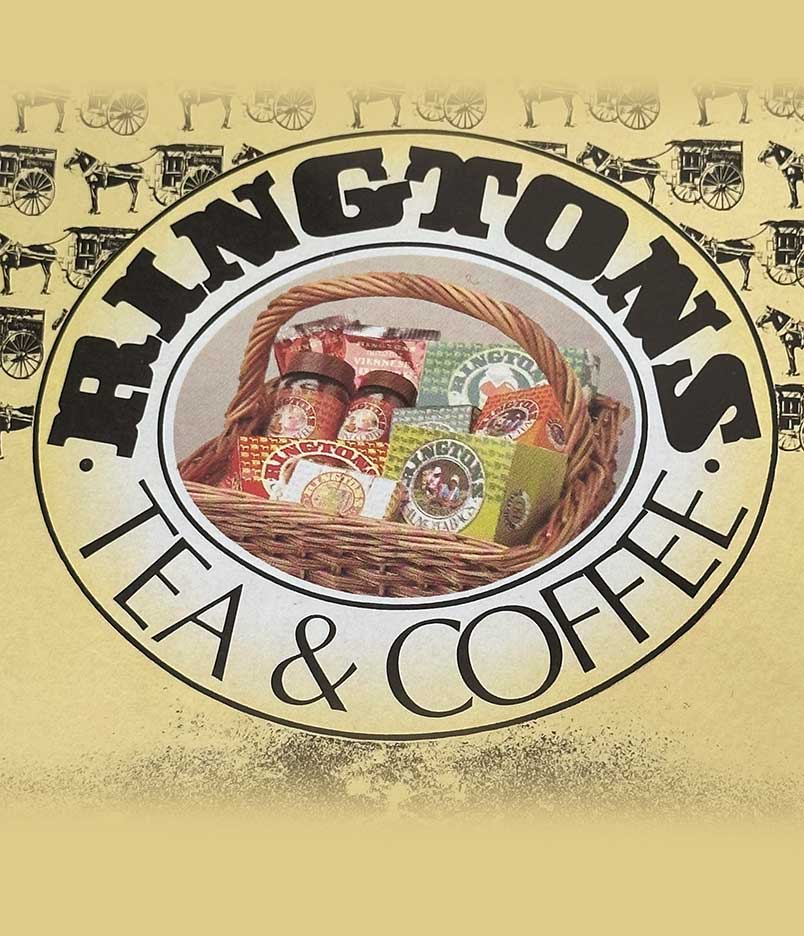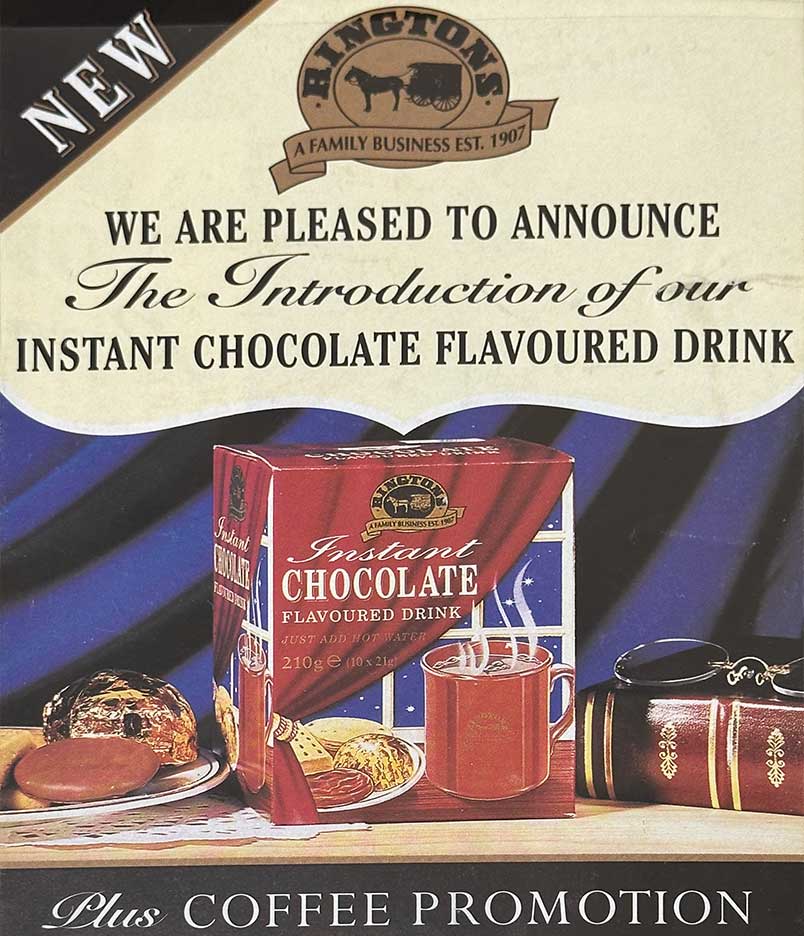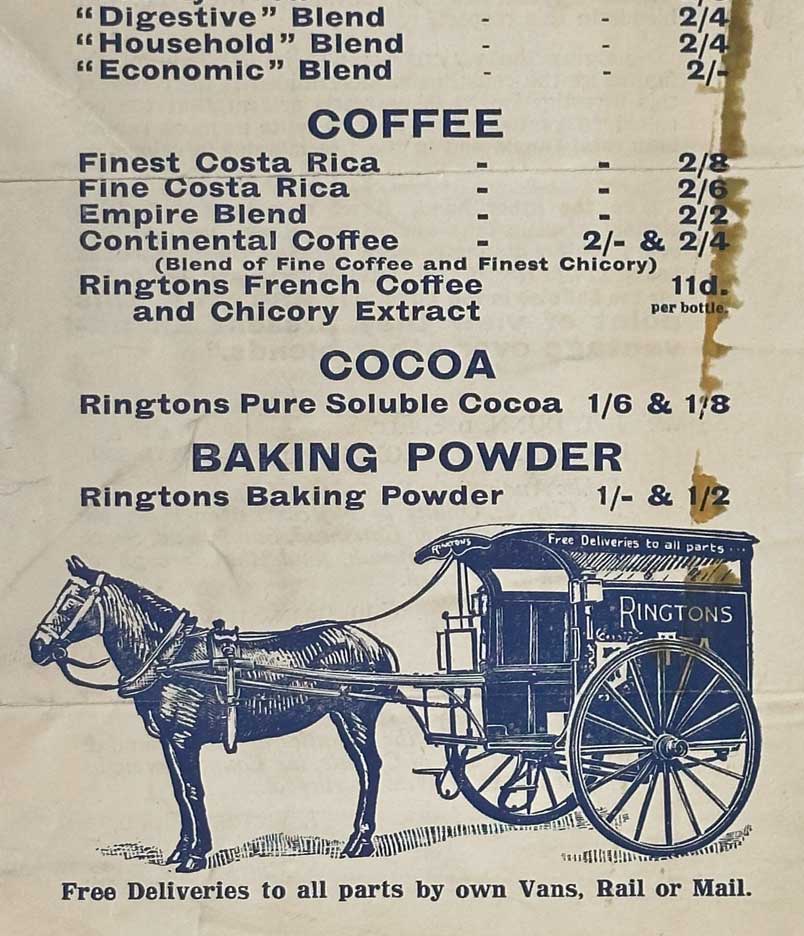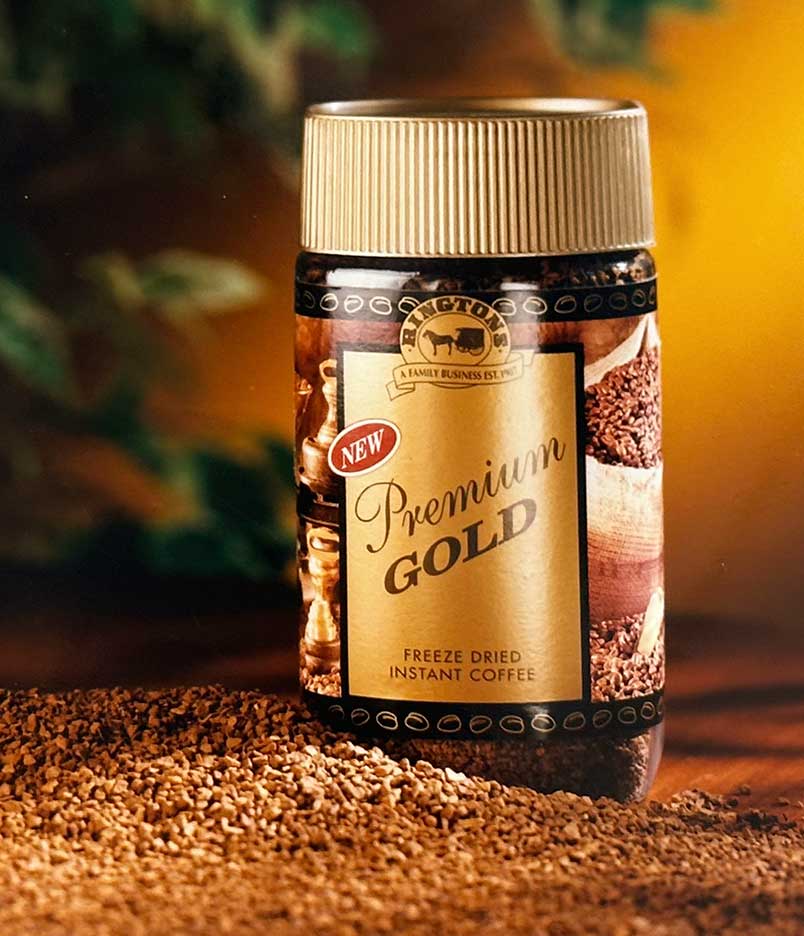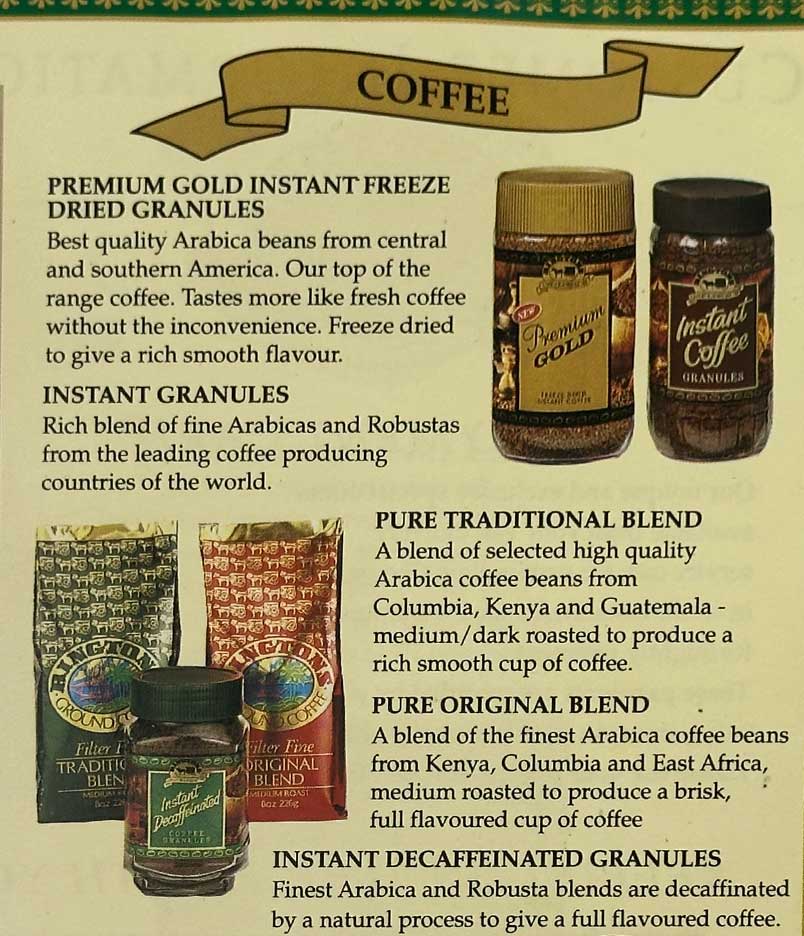Over 100 years of Coffee Knowledge – A trip to the Ringtons archives
30 January 2024
What is the first thing you think of when you hear the word Ringtons?
Tea?
Would you be surprised to know that we have been roasting coffee since the 1920s?
That’s over 100 years of coffee knowledge!
Scroll down for a selection of coffee articles from over the years.

Origins
The story of Ringtons Coffee begins in 1907 in Newcastle upon Tyne. Samuel Smith, the founder of Ringtons, started the business with a horse and cart, delivering tea directly to the doors of customers. This personal touch set the tone for our commitment to quality and customer satisfaction, values that continue to define Ringtons to this day.
Transition to Coffee
While Ringtons began as a tea company, the demand for high-quality coffee prompted us to expand our offerings. In the mid-20th century, we introduced a range of carefully crafted coffee blends that captured the hearts of discerning coffee enthusiasts.

Sourcing and Blending
One of Ringtons’ key strengths is our dedication to quality accross the entire supply chain, that means meticulous sourcing of our tea and coffee. Our Coffee Buying Team, with in-house Q-grader, carefully select beans from different regions to create unique and balanced flavour profiles. From our flagship Speciality Blend with tasting notes of milk chocolate, apple and lemon zest, to our House Blend with tasting notes of cocoa, liquorice and spice, we have a coffee to satifsy every palate.

Innovation and Adaptation
At Ringtons we cherish our heritage, while also embracing innovation. We have adapted to modern times by offering an extensive range of coffee products in different formats, including single-origin beans, pre-ground coffee, as well as convenient coffee bags – many of which you’ll see on the traditional Ringtons van.
Conclusion
From a traditional tea company delivering via horse and cart, to a growing brand with national presence; Ringtons is proud to continue offering quality tea, coffee and more, to different sections of the UK market.

The Archives
Please see below a selection on articles and images taken from our trip to the archives in 2023. Enjoy!
Big Coffee Push
From: ‘Ringtons Tea Tips’ – Issue Number 41 (June 1973)
ALTHOUGH we are primarily top tea men naturally we want our share of the coffee market. And next month we will be starting our ‘Big Coffee Push’.
We have been roasting and grinding pure coffee for over half-a-century, and when instant coffee started to make a real impact more than a decade ago, we introduced it to our range.
With our door-to-door systems of deliveries, our coffees should be just as popular with the housewife as our tea. The ‘cuppa’ of course is a British way of life and ground coffee is very much a special market. But ‘instant’ is so easily made that it is widely accepted in the home, snack bars, vending machines and for coffee mornings. It is also an inevitable adornment for student bed-sitters.
We do well with our distinctively-labelled instant coffee of 4-oz and 8-oz jars and 24-oz tins but, like Oliver Twist, we are asking for more, because we know that the business is there. Unfortunately the house-wife too often knows us solely as tea specialists and is not made fully aware that we are also tops for quality in coffee.
During the dozen years we’ve been selling ‘instant’ we’ve seen the initial small 2-oz tins change to the larger sizes in jars – introduced by manufacturers in the first place because of shelf appeal.
Jars may have this appeal in shops, where they stand out better against tins, but with our own delivery methods the glass jar certainly has its disadvantages.

To begin with, its not an ideal shape for us. We much prefer the compact package which takes up as little room as possible in the van. The jar is heavy, too-to pack 8-oz instant coffee a 20-oz jar is needed-and above all, glass doesn’t survive the accidental fall.
So jars are now giving way to cartons, resealable and just as airtight as containers, and ideal for a door-to-door selling operation. They are much lighter, one third of the weight, and the outer of twelve 8-oz cartons is smaller and takes up less than half the room in the van.
That’s not all – the 8-oz carton is even 2p cheaper to the customer!
Such a drastic change has had to be researched and we have test marketed the 8-oz carton in the South Yorkshire area at Sheffield, Doncaster, Barnsley and Leeds. Pat Murphy, our area manager there, enthusiastic from the start, reports that customers have been just as pleased and sales have taken an upward surge.
So we are now going ahead on all fronts. At the beginnings of June there will be a special incentive for an all-out effort to double – yes, double – our sales, and as soon as your 8-oz jars are exhausted they will be followed by cartons.
When the 8-oz carton makes its full impact we feel that customers will be looking for a 4-oz size carton too, and we have already got one in mind.
Look out for our big push and make certain that all your Mrs. Smiths, Mrs. Jones and Mrs. Browns soon look upon you as “My tea and COFFEE man”.
Ringtons Tea and Coffee – good company for 75 years.
Special feature – writes CHRIS ROBINSON
Ringtons Limited, a private firm of tea and coffee blenders and distributors, celebrates its 75th anniversary this year and is probably Britain’s biggest exponent of a unique business operation.
In 1907 its founder, Samuel Smith, with 25 years experience of the tea trade in Leeds, decided to branch out for himself. He saw tremendous possibilities in selling and delivering tea direct to the housewife and he commenced business in a small houseshop in Newcastle upon Tyne, delivering tea from a hand-barrow and then launching out with a horse drawn van in distinctive black, green and gold colours which eventually became famous in the North East as the vans grew steadily in numbers and the operations spread out over the Northern Countries.
By World War Two Ringtons had over 200 horse vans on the road delivering goods supplied from factories in Newcastle and Leeds, but after the war, modern traffic conditions made it inevitable that the day of the horse had gone. It was a tremendous task to switch from horse vans to motor transport, particularity as tea rationing was still in force, but by mid-fifties mechanisation had been completed and deliveries were being made by small motor vans, still in the familiar colours of the horse vans.

Ringtons still use the horse and van symbol as their trademark and their last horse van is on perpetual show in Beamish Open Air Museum in County Durham.
From the single horse van deliveries in 1907 Ringtons have grown to an area extending from Edinburgh down through Northumberland, Durham, Yorkshire and Lancashire, to Lincoln and Nottinghamshire, but they are still under the leadership of the third and fourth generations of the Smith family.
The current Board of Directors includes three grandsons and one great grandson of the late Sam Smith.
Sam Smith was born in Lady Pit Lane, Leeds where the current Ringtons factory now stands and he started work as a part timer at 10 years of age.
(Left to right) The team at the top celebrate Tom Dennett’s 50 years of sterling service: Messrs Nigel Smith, Buying Director; John Smith, Managing Director; Tommy Dennett, Transport Manager; Peter Else, Sales Director and John Rutherford, Financial Director and Company Secretary. Unfortunately Mr Doug Smith, Chairman, is missing from the photograph. It was rumoured that he had gone for a cup of tea!

The Importance of Coffee

New Pure Coffee Packs
Gallery
So next time you meet someone who thought Ringtons was only a tea company, show them this article. We’ve been at coffee for a while too!

Whole Bean Coffee
View our full range of whole bean coffee, freshly roasted at our factory.

Private Label Coffee
Want us to roast a bespoke blend of coffee just for you? Find out more here.
Contact our friendly team
Speak to us or drop us a message to find out how we can help your business.
